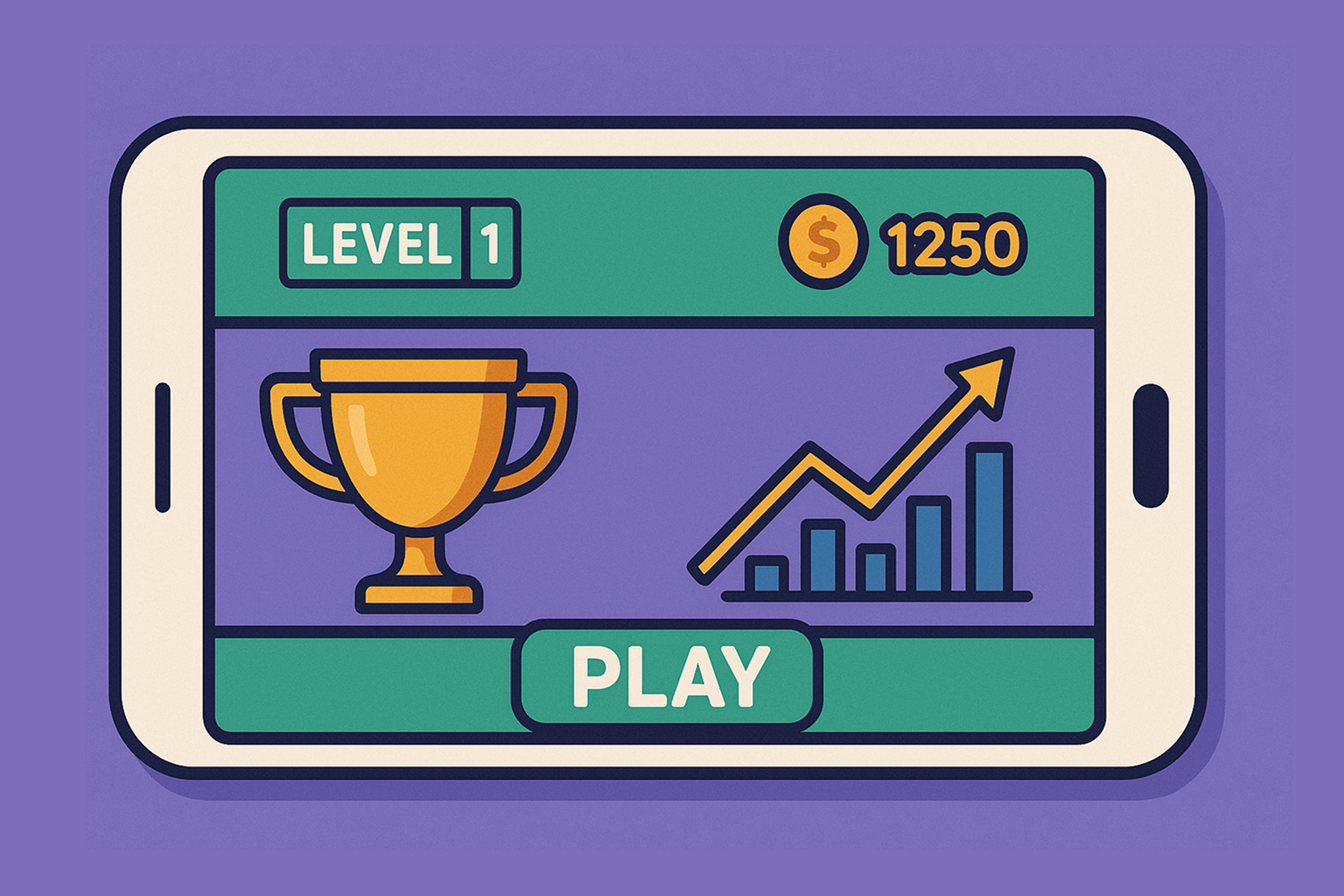That’s the title of a book written over 100 years ago by a Wall Street trader in a conversation with J.P. Morgan. It changed how I think about everything in finance. His observation was simple: the stock market is rigged like a casino, and the guys who own the big Wall Street firms have all the yachts – not their customers.
A large part of my early career was spent building games that kept millions glued to their screens. Zynga was Facebook’s biggest revenue source back in the day. Now I’m watching fintech use those same psychological tricks, and this imported playbook is having the desired effect for the neobanks and the trading platforms, not the customers.
The problem isn’t gaming. It’s bad gaming.
The consensus is that finance borrowed these mechanisms from gaming. That’s wrong. The real problem is they borrowed from gambling, not gaming. Or they’re doing surface-level gamification without understanding what actually makes games work.
Real game designers hate the word “gamification.” True game design is about investment in character development, long-term progression, storytelling. It’s about how people with different skill sets collaborate to kill the dinosaur together, not beat each other.
Instead, we get leaderboards celebrating who trades most frequently. Streaks for consecutive trading days – as if gambling daily with your future is an achievement. Confetti animations when you execute any trade, regardless of whether you’re buying at the peak or selling at the bottom.
These platforms scream “zero commission” while quietly making money from bid-ask spreads and foreign exchange margins. Every time you trade, they profit. The more you trade, the richer they get. It’s a fundamental misalignment: their revenue depends on encouraging behaviour that destroys your wealth.
Once you realise the whole thing is a sales machine – not designed to make you rich, but to make the people selling products rich – you start playing differently.
The big societal divide
This isn’t limited to finance. Society is splitting in two different ways of being. Fast food versus slow food movement. Clickbait news versus long-form Substacks. Quick health fixes versus consistent, long-term wellness thinking.
Finance is the same. For every Robinhood customer driven by that impulse, there’s probably someone else who views that as a complete nightmare. Overwhelming, not doing them any good anyway.
I’m not naive (or evangelical) enough to believe I’m going to grab people from Wall Street Bets who are betting on GameStop and turn them into our customers. They’re not my customers and never will be. But that doesn’t mean you can’t build a solid business with a completely contrarian position.
Many of our customers use us for their sensible core safe money, then do crypto trading on Binance. That’s fine. It shows self-awareness about what kind of investor you are. Going back to that societal divide, it actually answers a bigger question: what kind of human are you? Are you someone who’s going to be drawn into this clickbait hell hole, or are you going to reject that way of living?
It’s a human question, not a finance question.
Playing the anti-game
I want to give confetti animations when you’ve done nothing for a year.
Think about the mechanics that actually build wealth. Patient, buy-and-hold behaviour. Not panic-selling when markets tank. Understanding that in 20 years, you want to flip a switch in your app and turn on a salary for yourself so that you don’t have to work anymore.
We can help people visualise progress toward that goal using game mechanics, but positive ones. Your investment account levels up as you demonstrate discipline. You gain experience for weathering market storms without selling. Cooperative mechanics where investment clubs work like multiplayer games – different people bringing different skills to achieve better outcomes together.
This works. Just look at how we tackle obesity using game design. Long-term target weight, overall health, sustainable lifestyle changes. You don’t want people feeling like they’re losing this game – you want them winning by building actual wealth.
The FCA investigation last year was a good start in slapping the industry on the wrist. Yes, they got loot boxes right, but they did also miss the bigger picture. The real damage comes from celebrating all the wrong behaviours. Variable rewards have no place in serious investing – this is your money at risk, not entertainment.
Get the popcorn out
The beautiful thing about playing the long game is you can constantly point to the carnage. You only need to look at Reddit and X to see that this destruction is everywhere. It’s good to cancel out the short-term noise and madness, and pursue a deeper connection to your financial future.
The choice is understanding what game you’re actually playing, and who designed it to win. The house always wins in the rigged version. But you can choose to play a completely different game – one where patience gets rewarded, where doing nothing for a year earns celebration, where building real wealth matters more than generating trading commissions.
That’s the game worth playing.
This article was originally published on Fintech Finance News.



